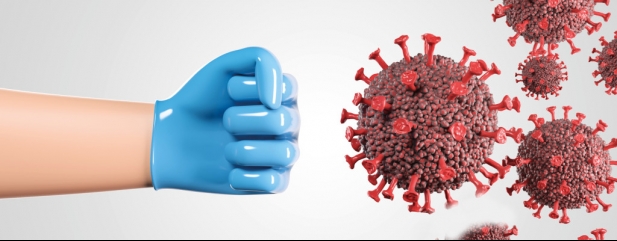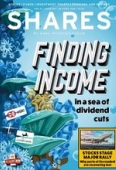Archived article
Please note that tax, investment, pension and ISA rules can change and the information and any views contained in this article may now be inaccurate.
Help the coronavirus fight now and profit later

Investors and the general public are going to view many companies in one of two ways once the coronavirus crisis has abated. They will either hold them in high esteem or view them with bitterness, with their opinion shaped by how companies behaved during the pandemic.
Companies are essentially earning a licence to make a profit once the crisis is over. To get one, they need to follow this playbook:
• Management take a pay cut and/or give up their bonus. It’s no good furloughing staff on 80% pay if the directors are still taking home the big bucks. They should lead by example, as illustrated by directors at ITV (ITV), Associated British Foods (ABF) and Restaurant Group (RTN), among others. Management are also likely to own stock, so they’ll share the pain with other shareholders if the company suspends dividends.
BT’s (BT.A) chief executive Philip Jansen has gone one step further by committing to no job losses related to the coronavirus crisis for the foreseeable future. BT is also giving a pay rise to frontline workers and Jansen is donating his salary for at least the next six months to the NHS and to affected small businesses in his local community.
• Give further support to staff and make the workplace safer. Supermarkets have installed screens on tills to protect workers and Morrisons (MRW) is giving staff an extra bonus for coming into work and keeping its shops open. Pets at Home (PETS) has set up a £1m crisis fund for its staff and is one of one many retailers offering discounts to NHS workers.
• Going above and beyond to help customers. Supermarkets are the pioneers in this field, such as offering NHS workers an exclusive period to shop, as well as the likes of Sainsbury’s (SBRY) ensuring that vulnerable and self-isolating individuals are given priority for online food delivery slots.
• Re-engineer the business to support the fight against coronavirus. Numerous companies including Smiths (SMIN) and Rolls-Royce (RR.) are using their skills and capacity to increase the UK’s supply of ventilators. Diageo (DGE) is donating up to 2m litres of alcohol to help make more than 8m bottles of hand sanitiser. Burberry (BRBY) is retooling its trench coat factory in Yorkshire to make non-surgical gowns and masks for patients.
These acts of generosity can make a big difference in the fight against coronavirus on many levels. Any selfish measures by companies will therefore stand out and cause reputational damage that could be long lasting.
For example, few people will forget Frasers’ (FRAS) price-ramping on home gym equipment in its Sports Direct stores, in an attempt to capitalise on the lockdown. Wetherspoon’s (JDW) founder Tim Martin came under considerable criticism for telling staff they wouldn’t be paid until the start of the Government’s furloughing programme, since rectified.
A website has been set up to track heroes and villains in the corporate world during the coronavirus crisis, called didtheyhelp.com.
Positive efforts to help will not go unnoticed and it certainly doesn’t feel as any of the aforementioned examples are doing it to get publicity. They are doing the right thing and that is a sign of a decent company, which matters to both consumers and investors.
Important information:
These articles are provided by Shares magazine which is published by AJ Bell Media, a part of AJ Bell. Shares is not written by AJ Bell.
Shares is provided for your general information and use and is not a personal recommendation to invest. It is not intended to be relied upon by you in making or not making any investment decisions. The investments referred to in these articles will not be suitable for all investors. If in doubt please seek appropriate independent financial advice.
Investors acting on the information in these articles do so at their own risk and AJ Bell Media and its staff do not accept liability for losses suffered by investors as a result of their investment decisions.
Issue contents
Editor's View
Feature
First-time Investor
Great Ideas
Investment Trusts
Money Matters
News
- Scottish Investment Trust denies ‘style drift’
- £1.6bn fundraising frenzy: companies tap markets to ensure their survival
- UK industrials ‘unlikely’ to breach debt covenants
- Trading platforms see surge in demand amid market volatility
- Market’s attention turns to exit strategy
- UK Treasury reported to be considering strategic companies bailout
- Times are hard for value fund managers
- Lindsell Train’s Japanese fund soars ahead

 magazine
magazine








